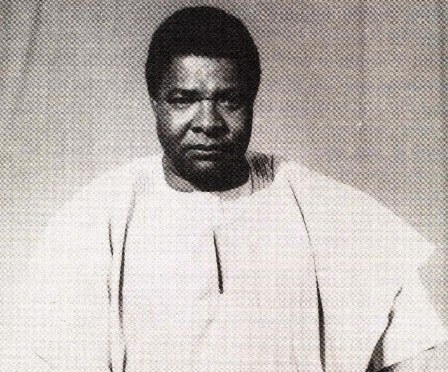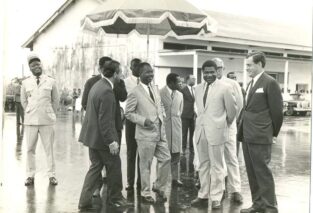One ministry that Ahidjo, and later his successor, seemed to have assigned almost exclusively to Anglophones was the Ministry of Transport. The list of Anglophones who held this ministry is long: Solomon Tandeng Muna (1961-1968), Bernard Fonlon (1968-1970), Christian Songwe Bongwa (1972-1975), John Monie Nkengong (1975-1979), Albert Ngome Kome (1979-1984), Benjamin Itoe (1984-1985), Christopher Nsahlai (2000-2002), and John Ndeh (2002-2004).
All said and done, the Ministry of Transport was, and still is, nothing to write home about. If there was ever a ‘lean’ ministry in Cameroon, Transport was, and still is, in the lead. This is understandable given the generally poor communication infrastructure in Cameroon then, which is even worse today: a poor road network, a moribund railway system inherited from the Germans, a run-down seaport that must be dredged of debris regularly, and practically no airline worth the name. The Ministry of Transport was, and still is, not a ministry anyone could, or can, be proud of heading. Ahidjo, in his insidious way, thought that Anglophones would perhaps stop their eternal grumbling and agitation if assigned to such an inconspicuous ministry.

Inconspicuous though it was, the transport ministry still had a source from which cash flowed liberally into the hands of the chief occupant and some of his cronies: the tollgate on the Wouri bridge in Douala. Few inhabitants of Douala today remember, or even know, that for several years before and after independence in 1960, drivers had to pay a toll before crossing from one part of the city to the other. The proceeds from the toll were meant for the maintenance of the bridge, although it was general knowledge that little, if any, of the money collected ever went towards its intended purpose.
Long before the first Anglophone, the Honourable Solomon Tandeng Muna, ever took his seat in the Ministry of Transport, the proceeds from that tollgate were already making their way to Yaoundé, after the local vultures had carted away their share. Years later, when Ahidjo promoted Muna to the post of Vice President, he entrusted the Ministry of Transport to Dr Bernard Nsokika Fonlon, who until then had been the Deputy Minister of Foreign Affairs.
No sooner had Fonlon taken his seat in his new office than a delegation came to see him from Douala. After the usual exchange of civilities, the head of the delegation proudly announced that his team had come to greet their new chief and that, as is customary in African tradition, no one ever visits a chief empty-handed—they had brought His Excellency some ‘kola nut’ from the banks of the Wouri.
The delegation head then asked that the chief’s ‘kola nut’ be brought in. Someone walked in with a heavy box, which the delegation head placed before the new minister. He told the astonished minister that they had brought him his share of the harvest from the tollgate over the Wouri River.
Fonlon was stunned. He asked why the money was being brought to him and not to the public treasury. After an exchange of astonished looks among the kola nut bearers, their leader told him they had deposited some of it in the treasury but that tradition demanded that the minister’s share be brought to him in cash, in person. Fonlon asked how long that tradition had been going on, and the answer was that it went back as far as any of them could remember—even during colonial days.
In his usual calm manner, Fonlon embarrassed them with a long lecture on why it was wrong to embezzle money meant for the general good, the common weal. Delving into the depths of Greek and Roman philosophy, enriched by lengthy quotations from Thomas Aquinas and Cardinal Newman, Fonlon told the bemused delegation how wrong it was for poor drivers – taxi drivers, for the most part – to pay the toll to cross the river only for the money to end up in the pockets of the minister and his cronies. That was unacceptable to him. He then ordered his bodyguard to accompany the trembling delegation to the public treasury, where the money was deposited and the receipt brought to him.
The next day, one of the headlines on the afternoon news on Cameroon radio was that the Minister of Transport had issued an order dismantling the tollgate over the Wouri River in Douala with immediate effect. As drivers, particularly taxi drivers, celebrated the unexpected windfall, many in the Ministry of Transport ground their teeth in anger, for their new boss had deprived them of a lucrative source of income. One frustrated official in that ministry spoke for many of his colleagues when he said: “Dat Anglo don put man sand-sand for garri-ooh.”


